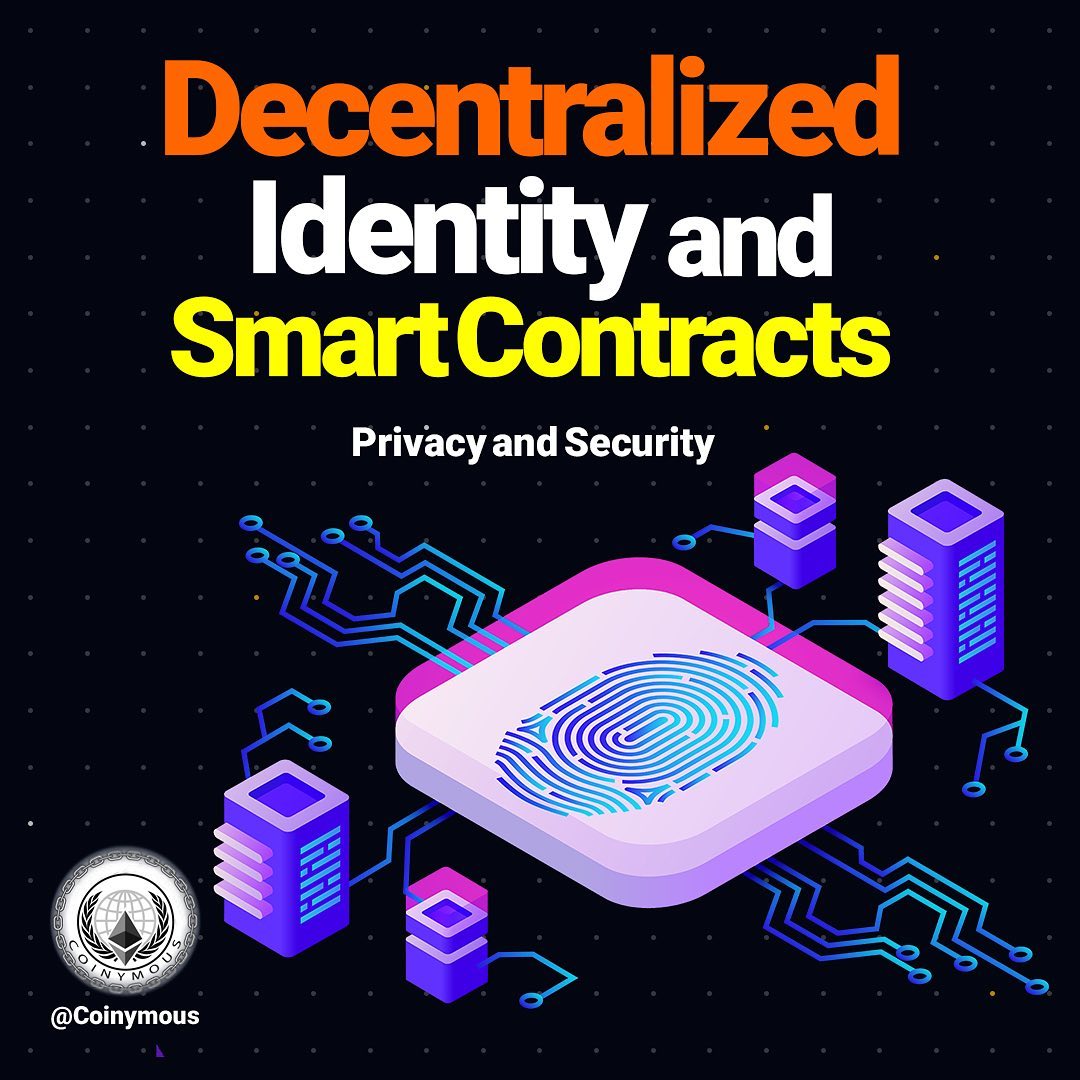Decentralized Identity and Smart Contracts: Privacy and Security 🔐🆔
Decentralized identity empowers individuals to control their personal data and enhances privacy, while smart contracts on blockchain networks automate agreements, ensuring secure and transparent transactions, thus bolstering privacy and security.

Introduction:
In today's digital age, privacy and security have become paramount concerns for individuals and businesses alike. The rise of blockchain technology has opened new possibilities for enhancing these aspects through decentralized identity and smart contracts. This blog post explores the intersection of decentralized identity and smart contracts, highlighting the potential benefits they offer in terms of privacy and security.
Understanding Decentralized Identity:
Decentralized identity refers to a framework where individuals have control over their personal data and digital identity, eliminating the need for central authorities. Traditional identity systems often suffer from vulnerabilities and data breaches, leaving users exposed to privacy risks. With decentralized identity, individuals gain ownership of their data, actively participating in its management and choosing which information to share. This innovative approach ensures enhanced privacy, as personal data is stored on blockchain networks, distributed across various nodes, and protected through encryption.
The Role of Smart Contracts:
Smart contracts are self-executing agreements that automatically execute predefined rules once certain conditions are met. These contracts are deployed on a blockchain network, allowing for secure and transparent interactions between parties. One of the key advantages of smart contracts is the elimination of intermediaries, reducing the risk of data breaches or manipulation. By automating the execution of these contracts, participants can trust that their transactions are carried out as intended, without the need to rely on centralized authorities.
Privacy in Decentralized Identity:
Decentralized identity offers individuals increased privacy control by allowing them to verify their identities selectively. Users can provide specific attributes or credentials without divulging unnecessary personal information, protecting themselves from potential data leaks. Blockchain's immutability ensures tamper-resistant records, further enhancing privacy. Moreover, decentralized identity solutions can enable secure and private interactions, facilitating seamless and trusted transactions without compromising sensitive data.
Security with Smart Contracts:
Smart contracts provide enhanced security by utilizing the decentralized nature of blockchain networks. As the contracts automatically execute predefined rules, they minimize the risk of fraudulent activities and manipulation. Additionally, the tamper-resistant nature of blockchain ensures that the terms of a smart contract cannot be altered once deployed, eliminating the potential for disputes. The transparency of blockchain also allows for auditing and accountability, providing assurance that transactions are secure and eliminating the need for trust in third parties.
The Synergy of Decentralized Identity and Smart Contracts:
When combined, decentralized identity and smart contracts form a powerful duo, addressing privacy and security concerns. Decentralized identity systems can provide unique identifiers for participants that can be seamlessly integrated into smart contracts. These identifiers can authenticate individuals, ensuring the accuracy and legitimacy of transactions while maintaining privacy. By utilizing decentralized identity in smart contracts, organizations can enhance security, establish trust, and streamline operations, revolutionizing various sectors such as finance, supply chain, and healthcare.
Conclusion:
Decentralized identity and smart contracts offer a promising path towards privacy and security in the digital world. By providing individuals with control over their data and automating agreements on blockchain networks, these technologies ensure enhanced privacy, mitigate security risks, and promote trust in transactions. Embracing decentralized identity and smart contracts can pave the way for a more secure and privacy-focused future, empowering individuals and organizations in today's ever-evolving digital landscape.